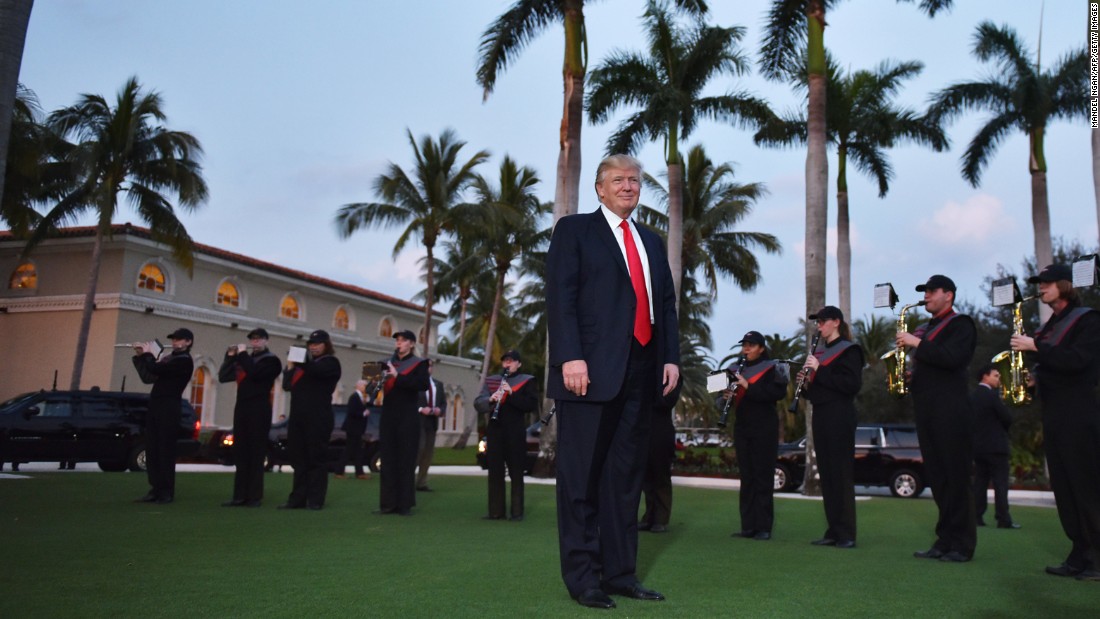
The transaction itself is straightforward. Trump will almost certainly continue to own his suite atop Trump Tower, and will continue to move between New York and his Mar-a-Lago resort. But by designating Mar-a-Lago as his domicile -- in legal terms, "his true, fixed, permanent home"-- Trump is announcing he will spend most of each year in Florida (when not in D.C.), making him a resident of the Sunshine State for purposes of voting and paying state taxes.
By doing so, Trump joins a large exodus of New Yorkers who regularly relocate to Florida for the sunny weather and lower taxes. Over the last decade, more than a million New Yorkers left the state, with Florida the top destination: in 2017 alone, more than 63,000 people made the move. One of them, politically active billionaire Tom Golisano (who left New York in 2009) made a point of letting the public know his relocation to Florida would save him more than $13,000 a day.
Trump might have a similar financial motive, although it's impossible to be sure: Trump has been notoriously secretive about his taxes, reneging on a promise to release his returns from past years.
"Good riddance," New York Gov. Andrew Cuomo tweeted after learning about Trump's decision to move. "It's not like Mr. Trump paid taxes here anyway. He's all yours, Florida."
We may not know Trump's precise Florida-vs-New York tax math, but the political math behind relocating is crystal clear.
In 2016, Trump carried Florida's 29 electoral votes over Hillary Clinton by a slim 1.2% margin, only about 113,000 votes out of 9.4 million cast.
Trump clearly hopes to carry Florida's 29 electoral votes again to win re-election -- he kicked off his 2020 campaign with a rally in Orlando -- but he knows that it's still a true swing state, going to Republican President George Bush twice (in 2000 and 2004), then swinging to back Democratic President Barack Obama (in 2008 and 2012).
Republicans have notched wins in Florida recently, but by margins that are too close for comfort. In 2018, Republican Ron de Santis beat Democratic Tallahassee mayor Andrew Gillum by only 33,000 votes, and the margin was even closer in the race for Senate -- in which Republican Rick Scott unseated Democrat Bill Nelson by a whisper-thin 10,000 votes.
Since then, Gillum has launched a drive to register 1 million new voters and turn Florida blue in 2020; the state Democratic party is spending $3.2 million on its own registration drive.
By suddenly becoming the most powerful politician in Florida, Trump can blunt some of that momentum, positioning himself as a native son rather than a tourist.
The third incentive for Trump to get out of New York is legal. The state Attorney General and the Manhattan District Attorney have launched multiple probes of Trump's businesses, charities, political committees and personal conduct. He's fighting, among other things, a defamation lawsuit by a former contestant on his "Apprentice" show; an investigation of his family foundation; and a subpoena seeking eight years of his tax returns.
Those inquiries won't vanish for Trump, simply with his moving away, but he knows that New York's overwhelmingly Democratic officials -- including the state attorney general and Manhattan district attorney -- have no incentive to take it easy on him.
And the Florida move won't automatically reap personal, political and legal benefits for the President. But you can't blame him for trying.
Bagikan Berita Ini














0 Response to "The politics behind Trump's move to Florida are crystal clear"
Post a Comment